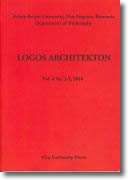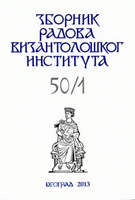Editors‘ Blog: Rooting for the Overdog
Her negatives were up, her positives were down, but that didn't stop plucky little Valentina Matviyenko on her path to the Federation Council.
More...We kindly inform you that, as long as the subject affiliation of our 300.000+ articles is in progress, you might get unsufficient or no results on your third level or second level search. In this case, please broaden your search criteria.
Her negatives were up, her positives were down, but that didn't stop plucky little Valentina Matviyenko on her path to the Federation Council.
More...
The names of public spaces can pronounce who we are, what we believe, and who won. In some places, that means they change all the time. Throughout this month, Transitions will present a series of articles marking the anniversary of the fall of the Soviet Union and Yugoslavia.
More...
Artists were unshackled by the enormous changes of 20 years ago, but that didn’t necessarily mean they thrived. Throughout this month, Transitions will present a series of articles marking the anniversary of the fall of the Soviet Union and Yugoslavia. As we look at how life has changed – or stayed the same – over the past 20 years, TOL correspondents in Croatia, Georgia, Moldova, and Ukraine asked people in various professions to describe their working life today compared with conditions before 1991. This collection of interviews with artists is the first in the series that resulted.
More...
Tips on coming economic and political shocks abound at Poland’s “eastern Davos” talking shop – if you know how to read them
More...
The Polish prosecutor general’s office also passed along bank information to Minsk that led to the arrest of a human rights activist.
More...
Bulgaria needs an aspiration that takes it beyond tar and asphalt.
More...
Though paid well and valued for the role they played, most journalists before 1991 knew which bold lines not to cross. Throughout this month, Transitions will present a series of articles marking the anniversary of the fall of the Soviet Union and Yugoslavia. As we look at how life has changed – or stayed the same – over the past 20 years, TOL correspondents in Croatia, Georgia, Moldova, and Ukraine asked people in various professions to describe their working life today compared with conditions before 1991. This collection of interviews with journalists is the second in the series that resulted.
More...
The leading conservative daily Rzeczpospolita and a rising new outspoken weekly fall into the hands of a wealthy businessman far to their left on the political spectrum
More...
This paper exposes some aspects of the way in which the selfreference and negation do generate the limitation results, both in the usual language (in the form of some paradoxical constructions) and in the formal languages (in the form of limitation theorems). These results can be analysed from the point of view of definability, by using two formal languages, one without negation and in which the semantic notions are definable, and a language with negation, in which the presence of semantic notions leads to paradox and therefore to in-definability results. A comparison with self-referential structures containing syntactic concepts reveals the asymmetry semantic-syntactic. Finally, as a case study, the analysis of Heidegger’s apory of tematization will reveal us that no mystery is involved in the idea of indefinability of Being; on the contrary, this apory, simply, has the structure of Russell’s schema.
More...
This article approaches its subject in a philosophical manner. It has as objective to construct a first definition of the inclusion function based on the nature of elements of a set. The analysis is based on the Zermelo–Fraenkel axioms. The study mainly approaches an algebraic content. The interpretation of the construction and definition also requires an epistemological frame. We introduced a function: the “nonhomogeneous choice function”. This study is a first step. The next part of the study is the second definition of the inclusion function, with applications in interpretations on the nature of mathematical elements in the extensions of fields and in the splitting fields.
More...
The patriarch of Constantinople became an important political factor in the middle Byzantine period. Three aspects will be discussed: 1. Responsibility for the inauguration of the ruler, 2. Support of usurpations and political coups, 3. Mediation.
More...
The article examines on the basis of the small number of essential literary and sigillographic evidence the scope and duties of the προνοηταί (as a terminus technicus) in the Byzantine administration. The earliest evidence comes from the 6th century, the latest from the 12th. Already in the Early Byzantine period the scope of their activities is fi xed: administration of domains and municipal and fi scal administration. Acting in the capacity of stewards of private and offi cial real estate these people were responsible for collecting and transmitting taxes to the responsible department, minus an allowance for themselves. Their colleagues in the municipal and provincial administration were revenue offi cers with special authority. In the provincial administration of the 11th the pronoetai were sometimes also ἀναγραφεῖς in their region. Till now we know only one example of a commander of a thema who was at the same time also a προνοητής (Eustathios Charsianites). The προνοηταὶ τοῦ δημοσίου (scil. fi scus) were authorized to exact outstanding taxes. A special case is the προνοητής of the alms-house of Michael Attaleiates in Rhaidestos, because he was the highest administrator of all its estates and dependencies. Normally the προνοηταί were administrators of a lower rank in the domains, subject to the οἰκονόμος or the κουράτωρ.
More...